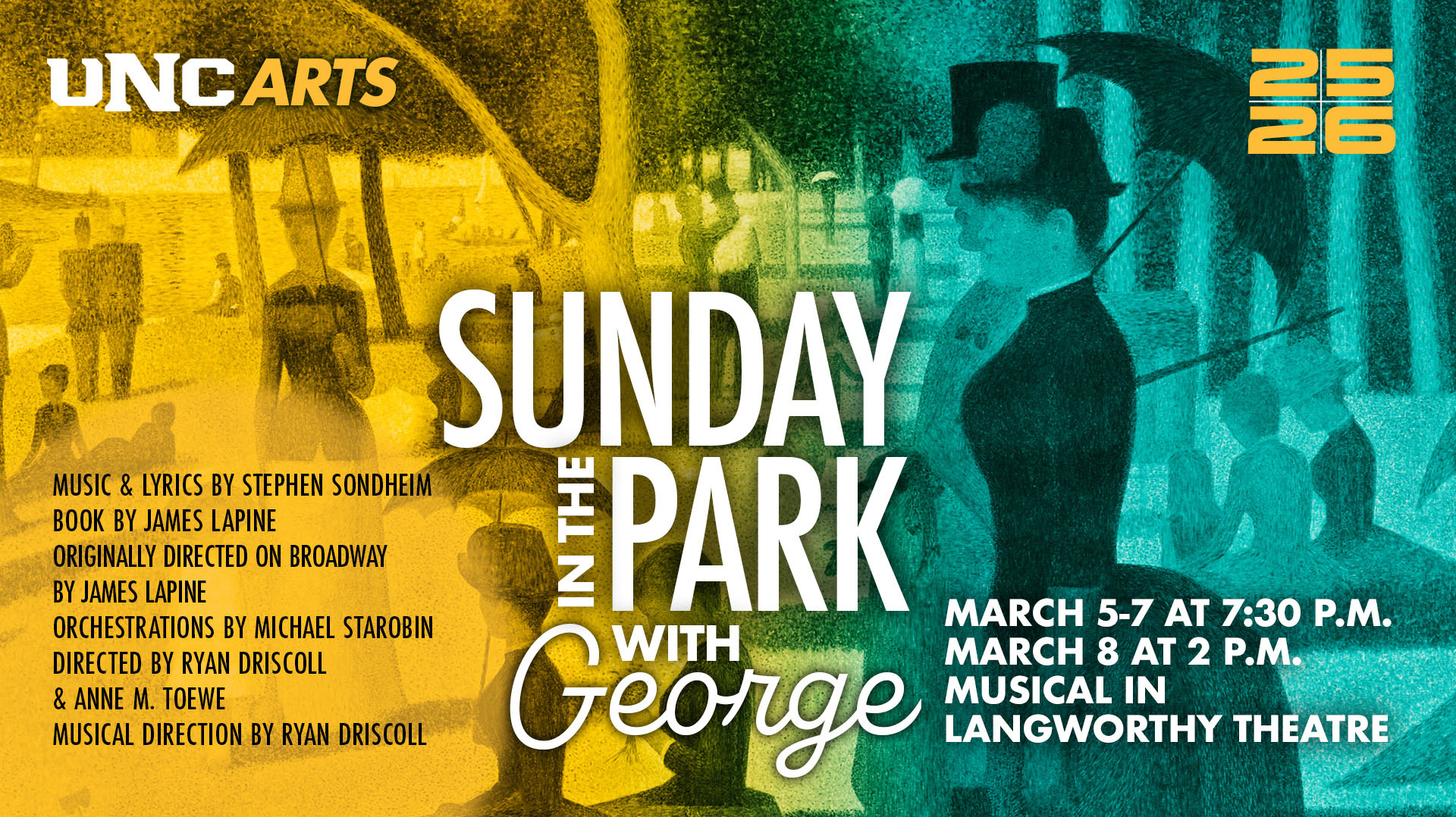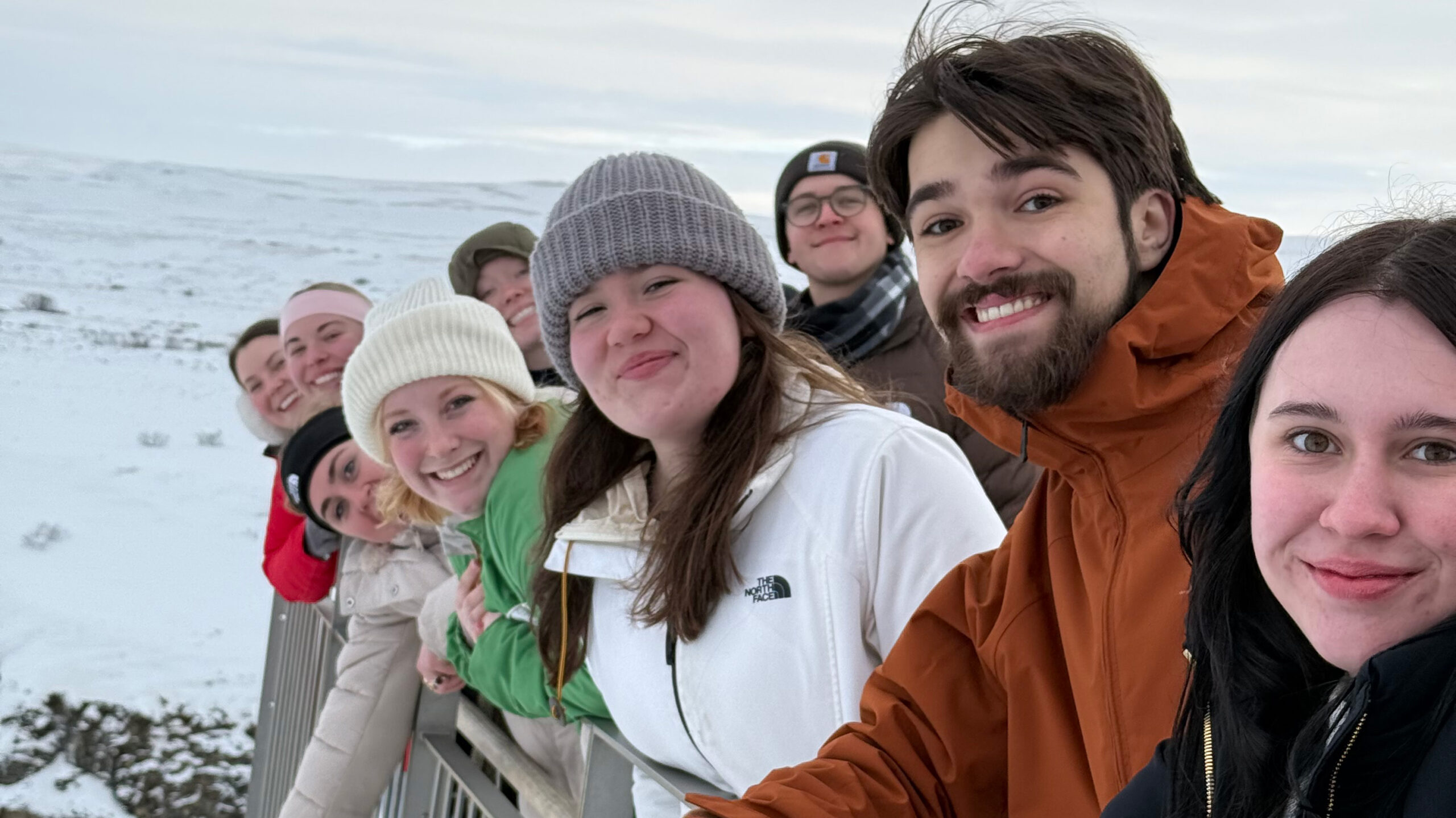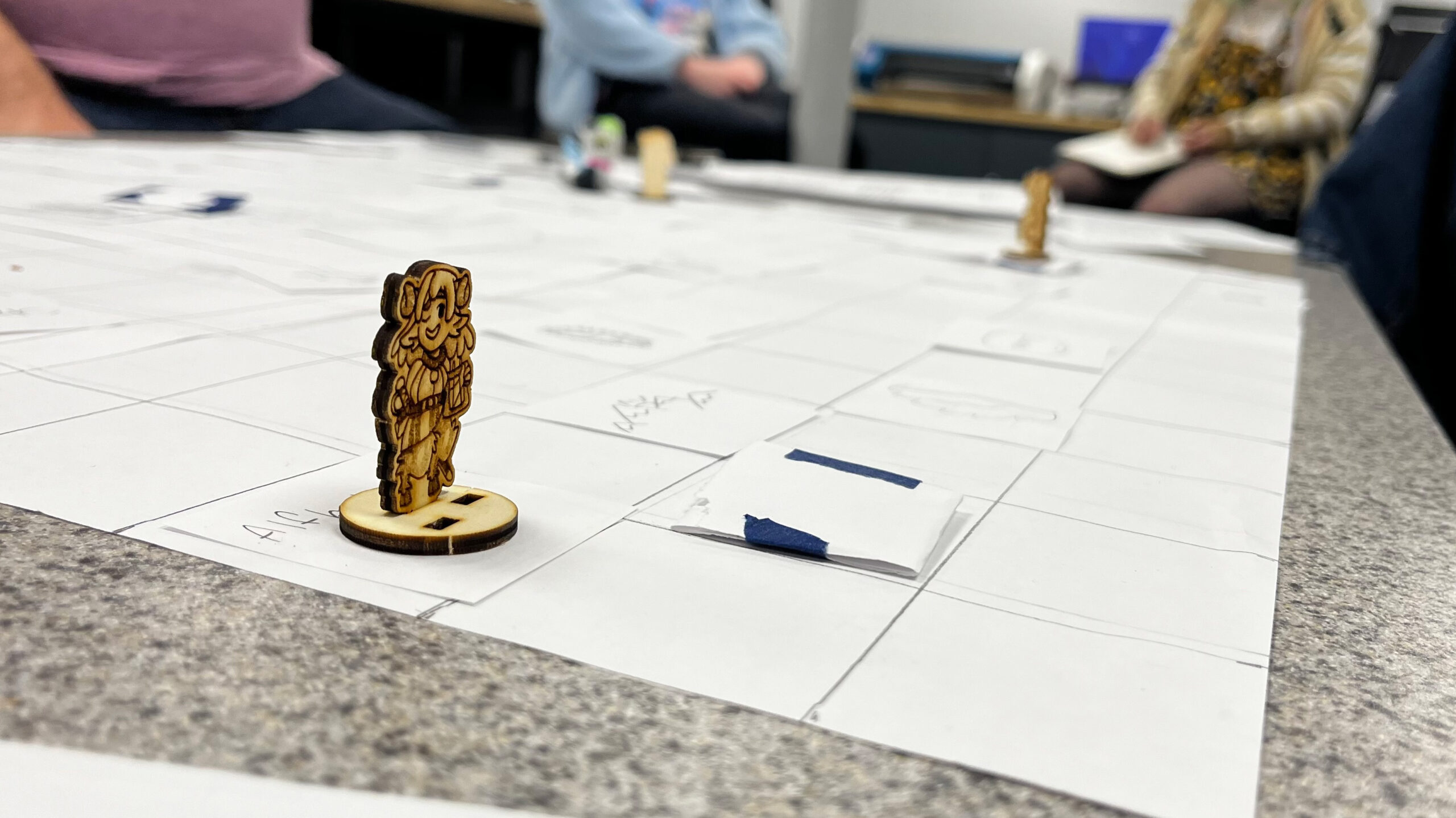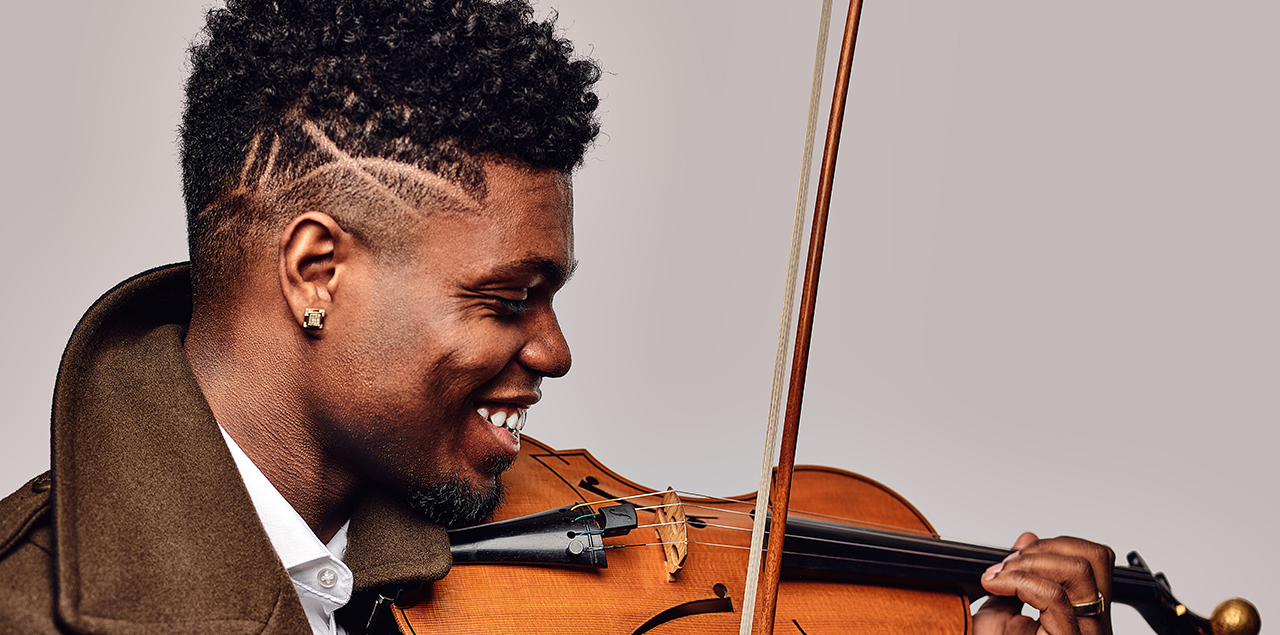
Article
April 18, 2024
Written by Brenda Gillen
Acclaimed Artist and Performer Represents Spirit of the Times in Race-Related Dissertation
Edward W. Hardy's research includes analyzing his own original compositions inspired by the African American Experience
Most doctoral students meet their professors when they arrive on campus. But Edward W. Hardy and Professor of Violin Jubal Fulks met at a Vermont summer music festival when Hardy was a teen. Their strong connection has lasted through the years, and now, Hardy is completing the University of Northern Colorado’s Music D.A. program, Music Performance Concentration, under Fulks’ tutelage.
Fulks, who performs on both modern and baroque violins, has taught at festivals in Iowa, California and Vermont. He joined UNC’s College of Performing and Visual Arts’ School of Music as a faculty member in 2013 and spends summers as faculty of the Green Mountain Chamber Music Festival in Burlington, Vermont.
Hardy earned a bachelor’s degree from the State University of New York at Purchase College and a master’s degree from Queens College. Before auditioning for UNC’s doctoral program early in the COVID-19 pandemic, Hardy built a career as a critically acclaimed Black and Puerto Rican composer, music director, violinist and violist.
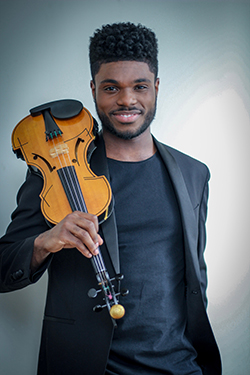
Hardy’s dissertation, titled “A Compendium of Three Musical Works Inspired by the African American Experience: Recordings, Commentary, and Pedagogical Observations,” focused on his original compositions.
“The most challenging aspect of my research has been analyzing African American music within the framework of European theory and determining the appropriate level of disclosure and tone in which to convey my perspective on the music’s impact on the human condition,” Hardy said.
Hardy described his compositions as reflecting on America’s pre-civil rights oppression, celebrating the Harlem Renaissance and exploring the landscape of other political, social and economic experiences. Works of Billie Holiday and Margaret Walker provided inspiration.
“This research can serve as a tool for violinists seeking modern techniques that bridge classical to popular music, composers in search of original compositions responding to current times, and storytellers seeking an understanding of how music can be composed using literature as a structure. I hope scholars, educators and performers are left with a spark of inspiration to create and perform works that reflect their heritages,” Hardy said.
Initially intending to compose a musical as a capstone project, Hardy shifted focus in the face of U.S. race-related challenges.
“I came to believe that creating a meaningful and impactful dissertation, authored by a minority musician, would be a more productive pursuit and serve as tangible evidence that anything is possible,” Hardy said. “Dr. Fulks instilled in me the confidence that incorporating my own works into a dissertation was not only feasible but also significant. They not only highlight my accomplishments, but also encapsulate the spirit of current times.”
Weekly conversations between Hardy and Fulks cover a wide range of topics, Hardy said, tying back to the music they create and its impact on them and their communities. Fulks said mentoring happens in their discussions, and they even delve into personal areas.
“We are similar in that we both come from humble backgrounds, entered this field of classical music and feel a little bit like outsiders. But at the same time, we’ve made wonderful connections and a home for ourselves in the field,” Fulks said.
He noted that, in addition to performing, Hardy composes his own pieces, which was typical of late 19th- and early 20th-century performers.
“These days, there seems to be a real separation between performers and composers. Eddie is a well-rounded, remarkable musician who can do different musical styles, arrangements and composing,” Fulks said. “I think getting the word out about his compositions is part of the motivation behind presenting it as research. In addition to completing his program in three years, I am not aware of any student who has done more performing than he has in these past few years. He’s a stellar example of a young man who is embarking on a wonderful career,” he said.
Throughout his studies, Hardy was the Beethoven in the Rockies Concert Series’ first digital marketing director and artistic advisor. A collaboration with UNC faculty led to the co-founding of the Northern Colorado Center for Arts Entrepreneurship, where Hardy was senior director of operations and artist entrepreneur in residence. These experiences leveraged Hardy’s prior role as New York City’s Omnipresent Music Festival founder and artistic director.
Hardy recently performed at UNC’s Southard Music Competition Winners Concert, at the Metropolitan Museum of Art and has an upcoming chamber music performance with Sho Kuon at Carnegie Hall this Spring.
“I feel fortunate to have studied under exceptional and inspirational UNC faculty members who provided invaluable support and guidance throughout my academic journey,” Hardy said.

